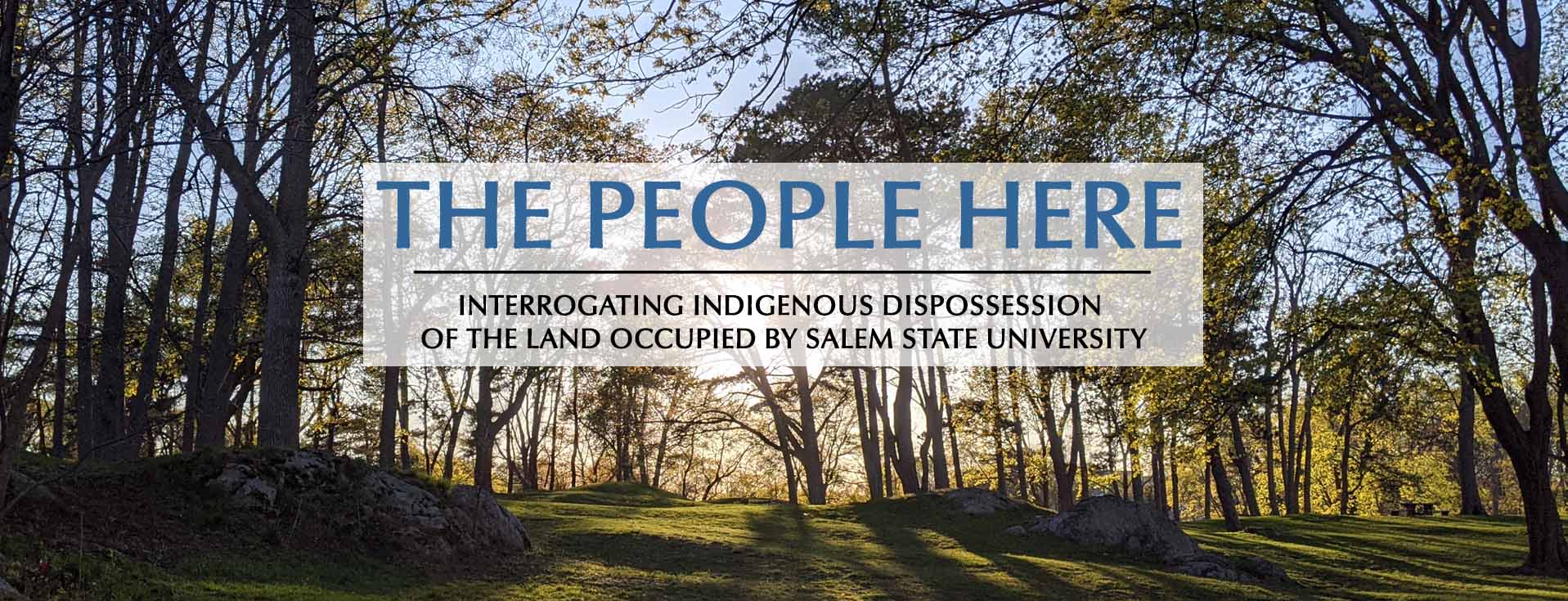Salem State University Land Acknowledgment
The land occupied by Salem State University is part of Naumkeag, a traditional and ancestral homeland of the Pawtucket band of the Massachusett. We acknowledge the genocide and forced removal of the people of Naumkeag and their kin and we recognize the ongoing colonization and dispossession of Indigenous homelands. We respect and honor the Massachusett tribe and the many Indigenous Peoples who continue to care for the land upon which we gather. We recognize our own responsibility to this land we occupy. We commit to continuously learning and sharing its history and that of the Massachusett and other Indigenous People who have been and remain here. We commit to develop and implement initiatives that work toward repairing the injustices continuously being committed on the Indigenous People of this land. We commit to making our own environmental impact on this land as sustainable as possible. We commit to a renewed and ongoing engagement with the Massachusett and all Indigenous People in and around Salem State.
Land acknowledgment of Naumkeag by Elizabeth Solomon of the Massachusett Tribe at Ponkapoag, delivered on Indigenous Peoples' Day 2020 for Salem in 1630: Pioneer Village:
When we began The People Here, we understood that we faced a challenge: if land acknowledgments written and spoken by non-native people are so often just rattled off and dismissed, how can we meaningfully acknowledge and honor the Indigenous people of this land without engaging in an empty performance? Over the many months of reading, writing, and thinking that went into this project, we, like the growing number of non-native who recognize the limits of simple land acknowledgment, focused on the notion of deeper engagement through activism, which puts words into action. While activism, as we’ve outlined in “Beyond Land Acknowledgment,” is vital work for anyone seeking to dismantle colonial systems of oppression, it doesn’t address the day-to-day, ongoing responsibility that comes with delivering a land acknowledgment in an institution like Salem State, which exists precisely because of colonialism.
In writing an abbreviated version of the thousands of words included in this project, we find ourselves wondering: how will this information inform our present and future interactions and conversations at Salem State? How will what we know about the people of Naumkeag affect how we teach, learn, collaborate, and live at our university? More broadly, how can this project and its land acknowledgment be part of an ongoing relationship of sharing, listening, and building with Native people and communities not only at our university but across Turtle Island? In other words, in what ways will this land acknowledgment manifest as a daily practice of awareness, accountability, dialogue, and action?
In the months after this project was first launched, its authors and sponsors along with other Salem State faculty, staff, and students, engaged in semester-long consulation with Thomas Green of the Massachusett Tribal Council to draft a land acknowledgment that is attentive to the questions above. The Salem State University Land Acknowledgment, above, was officially adopted by the University in spring, 2023.

